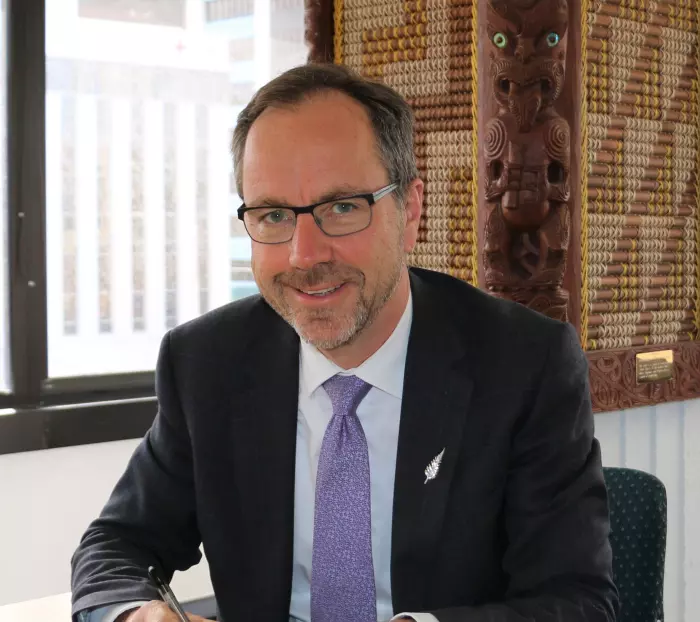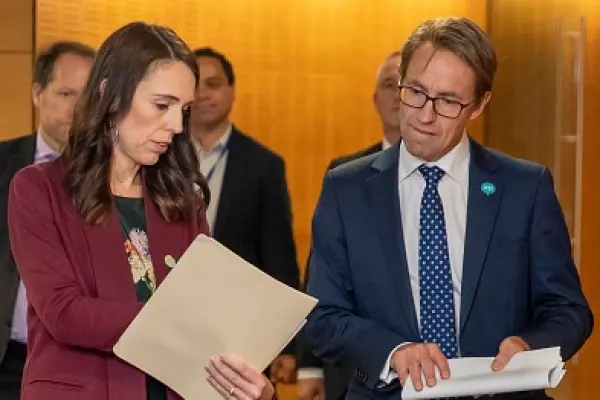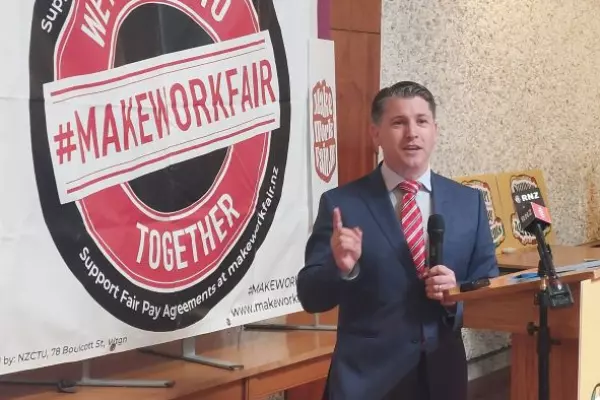There is an accountability gap at the heart of government. So says Parliament – and the public’s – main watchdog, the Controller and Auditor General.
There is too much focus on short-term issues, auditor general John Ryan said, and not enough on “long-term stewardship”.
Performance information is too hard to understand and too seldom leads to better performance.
He worries that even if the public sector is actually performing better, poor relationships and communication might lose the trust of New Zealanders.
“Does the public understand what you're trying to do? Does the public understand how well you're doing it?
“It’s not just reporting what's relevant to the department or agency, but what's relevant to the public,” he said in an interview with BusinessDesk.
A recent survey by the auditor general's team found “little evidence of a clear and common understanding of public accountability, why it was important, and who it was for”. Three out of four public employees said the way they’re held accountable could be improved.
A common view among public employees in Wellington was that accountability amounts to better services and outcomes, delivered with good oversight and financial performance – a well-run machine that doesn’t waste resources. So far so good, but a somewhat inward-looking view.
Public employees outside Wellington often see things differently, Ryan found. For them, accountability is more often “developing and maintaining good relationships, … behaviour, maintaining a good reputation, and ensuring that moral and ethical matters are well managed”.
That’s an outward, relationship-focused view of accountability.
Effective, efficient, and what else?
Ryan defines accountability as “public organisations demonstrating to parliament and the public their competence, reliability and honesty in their use of public resources ... Public organisations should value their relationships with communities as much as their relationships with ministers”.
Holding the public sector and the government to account is not helped by the current state of performance reporting.
Ryan does cite some positive examples. He likes a Ministry of Housing and Urban Development dashboard that tracks the progress of the government’s housing programme. He’s also fond of the customs service publishing integrity and corruption indicators in its annual report (see page 83).
But more generally, Ryan sees a host of problems with performance indicators. “Public organisations should be able to tell a clear and compelling story about how they deliver value and contribute to the outcomes that are important to New Zealanders.”
Instead, reporting is too often “incomplete, changeable and overly complicated”. Some public organisations are satisfied with meeting the minimum standards that will satisfy their auditors. Neither ministers, parliament, the treasury, the public service commission nor organisations themselves use performance data to its full potential.
It’s getting harder
Successive governments have recognised that many of NZ's "wicked problems" can't be solved by a single programme or agency, nor by government alone. Accordingly, inter-agency projects under various guises have been tried in recent years.
These are intrinsically difficult, starting with the vexed nexus between the “outputs” public agencies produce and what Ryan calls the “uncertain and uncontrollable outcomes” they are trying to improve.
The current “joint venture for family violence and sexual violence” illustrates the difficulties. Ten government agencies (Department of Prime Minister And Cabinet, Oranga Tamariki, Police, Corrections, Te Puni Kōkiri, Justice, Health, Education, Ministry of Social Development and ACC) are “collectively responsible” for improving how their agencies work together to reduce family violence and sexual violence.
“We’re really interested in clarity on accountability,” Ryan told BusinessDesk. “You've got ten chief executives sitting around the table. There's a leader. How does that work? How are you [as a chief executive] responsible?
“What's the priority of the joint venture relative to the priority of an agency's own targets and initiatives?”
In June, Ryan published an “early look” audit 21 months into the family and sexual violence joint venture. The findings were mixed, to say the least.
Despite goodwill and evidence of improved collaboration, it took a long time to get started and “the joint venture approach has resulted in only limited change to the way government agencies are working together”.
Relationships with Māori and NGOs weren’t what they needed to become.
Even the ministers nominally in charge were at the start “not clear about their respective roles, how they would work together to consider the cross-agency advice put to them, and their respective roles in decision-making”.
Given the existing weaknesses in accountability and performance reporting, it remains to be seen how these more complicated approaches will be measured and held accountable.
Nonetheless, inter-agency ventures on the country’s most difficult problems "is the right kind of idea,” Ryan said. “It’s clearly looking to improve accountability and delivery. And these things are not going to ever go in a straight line, right? They're trying something new. And I think it's exciting stuff."
Am I rough enough?
Ryan’s reports offer a host of potential improvements to reporting and accountability. Among these are focusing more on the issues that NZers care about, customising reporting for the agency and task, telling an “integrated and aligned story” that connects with the government’s objectives for the country, and better coordination amongst all the public watchdogs.
The research also found that "consequences are the ‘elephant in the room’ for those who work in the public sector”.
Ryan worries that in general, the public sector is poor at applying rational, consistent consequences when things go wrong. But he doesn’t necessarily advocate getting tougher. The wrong type of consequences can lead to “a lack of openness, poor decision-making and a culture of risk aversion and blame”, he has found.
“You want the public service to front up to issues as they emerge. You want them to act on them quickly, and you want to fix them. And you want to know that it's fixed for the future. So whatever system you're putting around sanctions, you want to make sure fundamentally there are [also] learnings.”
Ryan likes the civil aviation authority’s “just culture” framework:
- Unintentional human error? We console you, take remedial action, and move on.
- You knowingly broke a rule but thought the risk was justified, then a bad thing happened? We coach you and take other remedial action if warranted.
- You keep taking risks, and things keep going wrong? More remedial action, plus some punishment.
- You’re consciously, unjustifiably, flat-out reckless? Only then is the response purely punitive.
The auditor general’s thought experiment
“Think of someone in your life that you trust,” Ryan suggested. “Do you ask them to do an annual report? Do you get that annual report audited? If they do something you don't like, do you sanction them? Do you put them on a league table with other friends and say, 'look, you really need to improve'?
“That's not exactly applicable to the public sector," he volunteers. Yet "a lot of the things we do are the architecture of accountability, but the essence of it is trust and the relationship that you have with someone.
“That relationship is built on more than just an annual report that's audited and sent to Parliament and then select committees review it. It's much more about the connections that you're building.”
Do you know something we should know? Email BusinessDesk's public sector investigation team: [email protected].














